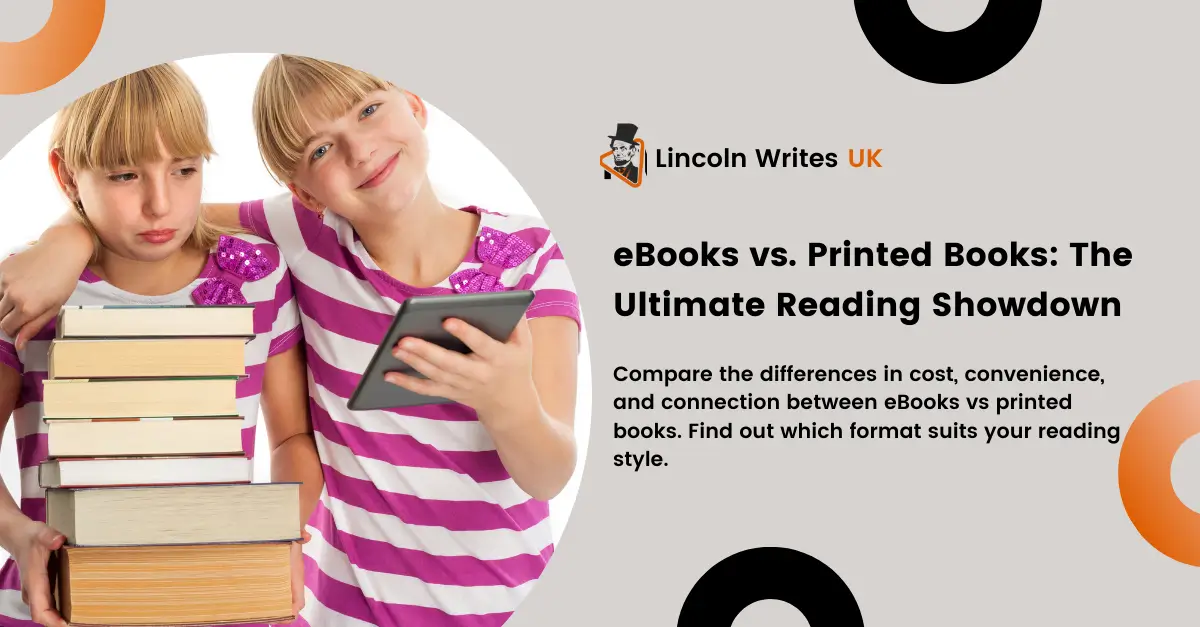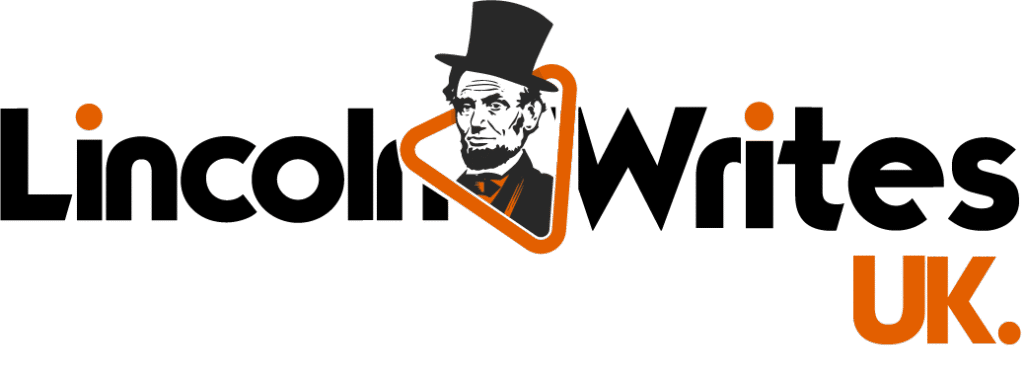The debate between eBooks vs printed books has been a prominent topic among readers, authors, and publishers alike. Each format has ardent supporters who extol the benefits of their preferred medium. On one side, eBooks are celebrated for their modern conveniences, including portability, cost-efficiency, and instant access to vast libraries. On the other side, printed books are cherished for their tactile experience, emotional connection, and traditional appeal.
Understanding the pros and cons of each format is essential for making an informed decision about which type of book best suits your reading habits and lifestyle. Whether you’re a tech-savvy reader looking for the latest digital innovations or a traditionalist who values the sensory experience of a physical book, this comprehensive comparison will help you navigate the benefits and drawbacks of eBooks vs printed books.
Cost Comparison: ebooks vs printed books
When it comes to deciding between eBooks and printed books, cost is often a significant factor to consider. Here’s a breakdown of the costs associated with each format:
eBooks
- Initial Cost of eBooks: Generally cheaper than printed books.
- Cost of E-Readers or Compatible Devices: Requires investment in a device like a Kindle, tablet, or smartphone.
- Availability of Free or Discounted eBooks: Many platforms offer free or heavily discounted eBooks, especially classics and promotional titles.
Printed Books
- Initial Cost of Printed Books: Often more expensive due to printing and distribution costs.
- Second-Hand or Used Book Prices: Potentially lower cost if buying second-hand or from discount stores.
- Long-Term Value and Resale Potential: Physical books can be resold or appreciated in value, especially rare editions.
Convenience Factors: ebooks vs printed books
The choice between eBooks and printed books comes down to personal preference and your specific reading needs. Some readers prefer the convenience and cost savings of eBooks, while others value the tactile experience and emotional connection of printed books.
Here are some key factors to consider:
eBooks
- Portability and Storage Capacity: eBooks are incredibly portable, allowing you to carry thousands of books in one compact device. This makes them ideal for travel and commuting.
- Accessibility and Instant Download: With eBooks, you can instantly download new titles from online stores, eliminating the need to visit a bookstore or wait for delivery.
- Adjustable Features: eBooks offer features like adjustable font size, search functions, and note-taking capabilities, enhancing the reading experience and catering to individual preferences.
Printed Books
- Tactile Experience and Sensory Satisfaction: Many readers find joy in the tactile experience of holding a printed book, turning its pages, and even smelling the paper.
- Ease of Reading: Printed books can be read anywhere without the need for electronic devices, making them accessible without technology.
- No Battery Concerns or Screen Glare: Unlike eBooks, printed books don’t require charging and can be read comfortably in any lighting condition without screen glare.
Connection and Engagement: ebooks vs printed books
eBooks and paper books both offer a range of features that enhance the reading experience and foster deeper engagement with the content:
eBooks
- Interactive Features: eBooks often come with interactive elements such as hyperlinks, multimedia content, and integrated dictionaries, making the reading experience more dynamic and informative.
- Customization Options: Readers can customize their eBook experience with options to change font type, background color, and other display settings to suit their preferences.
- Eco-Friendliness and Space-Saving Benefits: eBooks are environmentally friendly as they reduce the need for paper and physical storage space, contributing to a lower carbon footprint.
Printed Books
- Emotional and Nostalgic Value: Printed books often hold sentimental value and can evoke nostalgia, making them cherished possessions.
- Benefits of Reading Physical Books: Studies suggest that reading physical books can lead to better retention and comprehension, as well as reduced eye strain compared to screens.
- Collectability and Aesthetic Appeal: Printed books can be collected and displayed, adding aesthetic value to personal spaces and allowing readers to build personal libraries.
Which is Better Paper Books or eBooks?
Choosing between ebooks vs printed books often comes down to subjective preferences and lifestyle considerations. Each format has unique advantages that may appeal to different readers depending on their needs and circumstances.
Subjective Preferences
- Paper Books: Many readers enjoy the tactile experience of holding a physical book, the smell of the paper, and the ability to see their progress by the thickness of the pages they’ve read. Printed books also don’t require batteries or electronic devices, making them accessible anywhere.
- eBooks: For tech-savvy readers, eBooks offer convenience and flexibility. They allow customization of the reading experience through adjustable font sizes and background colors, and features like built-in dictionaries and hyperlinks can enhance learning and understanding.
Lifestyle Considerations
- eBooks are incredibly convenient for travel. They save space and weight in luggage, and a single device can store thousands of titles. This is particularly beneficial for long trips or when access to physical books is limited.
- eBooks can be advantageous for students and researchers. The ability to search text, highlight, and take notes directly on the device can streamline study sessions. However, some studies suggest that printed books may be better for deep reading and retention.
- For casual reading at home, either format can be suitable. However, those who enjoy reading before bed might prefer printed books to avoid screen time, which can disrupt sleep patterns.
Benefits of Reading Physical Books
- Enhanced Concentration and Focus: Physical books can help readers maintain better concentration and focus. The lack of notifications and digital distractions allows for a more immersive reading experience.
- Lower Distraction Levels: Unlike digital devices, printed books do not come with the temptation of multitasking or browsing the internet, leading to a more focused reading session.
- Positive Impact on Sleep Patterns: Reading printed books before bed can promote better sleep patterns. The absence of blue light, which is emitted by screens and can interfere with sleep, makes physical books a better choice for bedtime reading.
- Reduced Screen Time: Physical books help reduce overall screen time, contributing to better eye health and less strain from prolonged exposure to electronic devices.
Benefits of an eBook
- Space Efficiency and Ease of Carrying Multiple Books: eBooks offer unparalleled space efficiency. A single device can store thousands of books, making it easy to carry an entire library with you wherever you go.
- Instant Access to a Vast Library of Titles: With eBooks, readers have instant access to a vast selection of titles from online bookstores and libraries. This convenience allows for spontaneous reading choices and immediate access to new releases.
- Environmental Impact and Sustainability Considerations: eBooks are more environmentally friendly than printed books. They reduce the need for paper, ink, and physical transportation, contributing to lower carbon emissions and deforestation rates.
Must Read: How to Write an eBook - Effective Strategies for New Authors
Why Are Paper Books Better than eBooks?
Paper books offer a unique sensory and emotional experience that eBooks cannot replicate. They provide long-term durability without the need for technology and support community and social interactions through easy sharing and gifting.
Here is a detailed comparison:
| Aspect | Paper Books | eBooks |
| Sensory and Emotional Aspects | Physical books offer a tactile experience, with the feel and smell of paper enhancing the reading experience. | eBooks lack the sensory qualities of printed books. |
| Long-Term Durability | Printed books are durable and can last for decades without the need for technology or power. | eBooks rely on electronic devices that may become obsolete or malfunction. |
| Lack of Technological Dependencies | No need for batteries, chargers, or electronic devices. | Requires a compatible device and electricity. |
| Community and Social Aspects | Printed books can be easily shared, gifted, or sold, fostering a sense of community. | Sharing eBooks is often restricted by digital rights management (DRM) and device compatibility. |
Conclusion
There is no definitive winner in the debate between ebooks vs printed books, as the best choice depends on individual preferences and lifestyle. Both formats offer unique benefits that cater to different reading habits and needs. Whether you prefer the traditional appeal of printed books or the modern conveniences of eBooks, the most important thing is to enjoy the act of reading itself.
Frequently Asked Questions
Are eBooks cheaper than printed books in the long run?
In cost comparisons of ebooks vs printed books, eBooks are generally cheaper upfront than printed books due to lower production and distribution costs. However, the initial investment in an e-reader or compatible device must be considered. Over time, the cost savings from purchasing discounted or free eBooks can outweigh the initial device expense.
Can reading eBooks cause more eye strain than printed books?
Reading eBooks can cause more eye strain than printed books due to prolonged exposure to screens and blue light. However, many e-readers are designed with features like e-ink technology and adjustable backlighting to minimize eye strain. Regular breaks and proper lighting can help mitigate this issue.
How do the environmental impacts of eBooks and printed books compare?
eBooks have a lower environmental impact than printed books as they reduce the need for paper, ink, and physical transportation. The production and disposal of electronic devices do have an environmental footprint, but overall, eBooks contribute less to deforestation and carbon emissions. Printed books, however, have a one-time environmental cost and can be recycled or passed on to others.
Will eBooks replace printed books?
While eBooks offer convenience and cost savings, printed books provide a tactile and nostalgic experience that many readers cherish. Both formats have unique advantages, making it unlikely that eBooks will fully replace printed books. Each will continue to coexist, catering to different preferences and needs.


